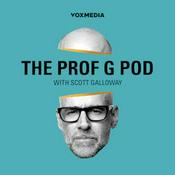13 episodes

Scarcity, Abundance and Urgency: How Natural Gas Prices Dictate the Pace of Energy Transition
22/12/2025 | 21 mins.
In this episode of the Energy Flux podcast, host Seb Kennedy explores the evolving landscape of energy markets, focusing on the implications of gas pricing on the energy transition.He discusses the potential for cheaper gas to impact investments in renewable energy technologies and the mindset shifts among policymakers as energy crises recede.The monologue also delves into the future of liquefied natural gas (LNG) and the volatility of energy markets, emphasising the need for strategic planning in the face of potential shortages in the coming years.🎦 Watch video version: Energy Flux YouTube pageTakeawaysThe energy crisis is shifting towards a more stable pricing environment.Cheaper gas may hinder the urgency of the energy transition.Policymakers may deprioritise energy security as crises fade.Abundance in energy can lead to complacency in innovation.The LNG market faces uncertainty with potential project cancellations.Investment in LNG infrastructure is becoming less attractive.Gas volatility underscores the need for strategic energy planning.The LNG industry itself is warning of a supply crunch in the early 2030s.Future energy policies must consider the potential for sudden market swings.Chapters00:00 Talking Gas Outside the Kings Cross Gasometer Buildings03:06 The Impact of Cheap Gas on Energy Transition04:37 Policy Challenges and Mindset Shifts08:17 The Future of LNG Projects and Market Dynamics14:34 The Paradox of Energy Abundance and ComplacencyFor more info and to subscribe, head to www.EnergyFlux.news

The Illusion of Power: Empty Threats & New Dependencies in a Fragmented Energy World
09/11/2025 | 15 mins.
In this episode, Energy Flux founding editor Seb Kennedy discusses the latest developments in energy diplomacy. Chief among these is the European Union's recent decision to ban Russian LNG; the implications for EU aspirations of energy independence; and the trade-offs of relying on allies like the US and Qatar, which are using the EU's own sustainability regulations as a tool of diplomatic coercion. He also covers the US sanctions on Russian oil companies Rosneft and Lukoil, and the complexities of enforcing these measures. Seb connects the dots to uncover a troubling picture of geopolitical dysfunction, where decisive actions are undercut by empty threats and a glaring lack of enforcement.Are we witnessing a coherent strategy, or just a series of volatile half-measures that create the illusion of power? Key Topics Discussed:The EU's Accelerated LNG Ban: Why the 2027 deadline is a bigger deal than it seems, and the logistical headaches it creates for Central Europe.The Dependency Pivot: How swapping Russian gas for US LNG creates a new set of vulnerabilities.Empty Threats: Deconstructing why the US and Qatar's warnings over EU sustainability rules are a bluff that collapses under scrutiny.Sanctions & Enforcement: Analysing the new US sanctions on Lukoil and Rosneft, and why their success hinges on an enforcement track record that's far from perfect.To find out more about Energy Flux and to sign up for free updates, head to www.EnergyFlux.news.

The Illusion of Power: Empty Threats & New Dependencies in a Fragmented Energy World
24/10/2025 | 15 mins.
In this episode, Energy Flux founding editor Seb Kennedy discusses the latest developments in energy diplomacy.Chief among these is the European Union's recent decision to ban Russian LNG; the implications for EU aspirations of energy independence; and the trade-offs of relying on allies like the US and Qatar, which are using the EU's own sustainability regulations as a tool of diplomatic coercion.He also covers the US sanctions on Russian oil companies Rosneft and Lukoil, and the complexities of enforcing these measures.Seb connects the dots to uncover a troubling picture of geopolitical dysfunction, where decisive actions are undercut by empty threats and a glaring lack of enforcement.Are we witnessing a coherent strategy, or just a series of volatile half-measures that create the illusion of power?Key Topics Discussed:The EU's Accelerated LNG Ban: Why the 2027 deadline is a bigger deal than it seems, and the logistical headaches it creates for Central Europe.The Dependency Pivot: How swapping Russian gas for US LNG creates a new set of vulnerabilities.Empty Threats: Deconstructing why the US and Qatar's warnings over EU sustainability rules are a bluff that collapses under scrutiny.Sanctions & Enforcement: Analysing the new US sanctions on Lukoil and Rosneft, and why their success hinges on an enforcement track record that's far from perfect.Chapters & timestamps00:00 EU's decisive action on Russian LNG04:47 The paradox of 'energy independence'08:27 US sanctions on Russian oil companies12:05 The complexity of geopolitical coercionTo find out more about Energy Flux and to sign up for free updates, head to www.EnergyFlux.news.

Gastech 2025 presentation: Mapping the storage-speculation nexus
17/9/2025 | 20 mins.
In today's episode, Energy Flux founding editor Seb Kennedy runs through the paper he presented at the recent Gastech 2025 conference in Milan.The title of the paper is Mapping the Storage-Speculation Nexus: Hedge fund positioning and the TTF forward curve.The paper explores a novel methodology for identifying investment fund trading strategies on Dutch TTF, the benchmark European natural gas futures price.Seb explains the methodology in full, and what it tells us about last year's TTF bull run and subsequent dramatic correction in February and April this year.He concludes by suggesting policy reforms that could be explored to mitigate some of the speculation-driven price volatility that has characterised TTF in recent times.The full slide deck can be downloaded at www.EnergyFlux.news, where you can sign up for the Energy Flux newsletter -- where all this research was originally published in 2024 and early 2025.

Energy Flux @ Gastech 2025 - Milan, Italy
14/9/2025 | 28 mins.
Energy Flux founding editor Seb Kennedy tours the Gastech exhibition while reflecting on the main themes from the four-day conference.👉For more analysis, subscribe to the newsletter at www.EnergyFlux.news SummaryIn this episode of the Energy Flux podcast, host Seb Kennedy reflects on the Gastech 2025 event, discussing the rising US presence in the LNG market, the economic realities of pricing, and the political implications of US LNG exports.He explores the future of US natural gas production and shares insights from his experiences at the event, emphasizing the complexities and challenges facing the energy sector.Key topics & takeawaysGastech was a momentous event at a significant historical junctureThe disconnect between public statements from industry leaders and market realities is wideningOver-investment in LNG capacity is reshaping the global glut depth & duration outlookTransatlantic margins will face significant compression (as detailed in last week’s Hot Take)North-West Europe-TTF price dislocation as lead indicator for distressed LNG cargo pricingHow merit order economics and cost inflation affect LNG investment attractivenessThe history of LNG, and the difference between conventional integrated export projects vs US LNG second waveThe political & economic implications of gas/electricity price inflation in the domestic US marketCan US shale production growth keep up with competition for upstream gas resources (LNG vs data centres)? Read more & subscribe at 👉 www.EnergyFlux.news 👈
More Business podcasts
Trending Business podcasts
About The Energy Flux podcast
Listen to The Energy Flux podcast, The Diary Of A CEO with Steven Bartlett and many other podcasts from around the world with the radio.net app

Get the free radio.net app
- Stations and podcasts to bookmark
- Stream via Wi-Fi or Bluetooth
- Supports Carplay & Android Auto
- Many other app features
Get the free radio.net app
- Stations and podcasts to bookmark
- Stream via Wi-Fi or Bluetooth
- Supports Carplay & Android Auto
- Many other app features


The Energy Flux podcast
download the app,
start listening.

































